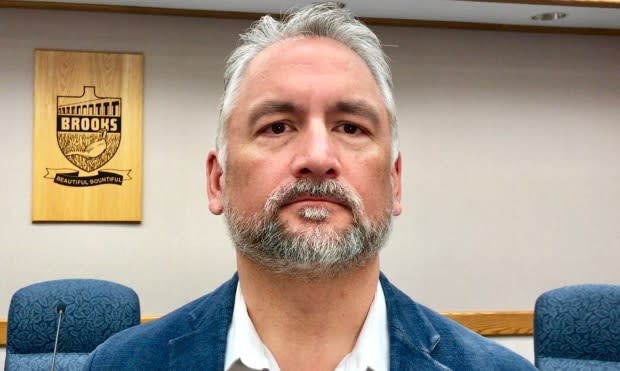Alberta RCMP have hired first 46 new workers for rural crime strategy
The Alberta RCMP have hired about 10 per cent of the new workers required for a new provincial strategy to combat rural crime, the organization announced on Thursday.
The list of new hires include 25 officers stationed at small town detachments, three civilians and 18 police officers working in specialized or central support programs.
Many of those 18 "support" officers will be working out of Edmonton and Calgary, according to RCMP. The proportion came as a surprise to some people who are waiting for more boots on the ground in rural Alberta.
Alberta Urban Municipalities Association (AUMA) President Barry Morishita said increasing the share of policing costs paid by municipalities to fund centralized positions wasn't how government initially described a new rural policing model.
"We do still believe that the primary goal of this is to have new boots on the ground, whether they be RCMP or not, who support local police work," Morishita said on Thursday. "We haven't seen enough of that yet."
Al Kemmere, president of the Rural Municipalities of Alberta, says it's going to be a challenge to explain to residents now paying more property taxes for police how more centralized police services will reduce rural crime.
Many rural municipalities have now separated out the cost of rural policing on property tax invoices to show residents why their bills have risen, he said.
"We are already getting people saying, 'So, what's the difference going to be?' And we don't have those answers yet," he said of local police service.
RCMP looking for 300 more officers by 2024
Last year, the United Conservative Party government said hiring more police officers and civilian RCMP members would be one of several strategies to combat a perceived increase in rural crime.
In 2019-20, rural RCMP cost about $375 million in Alberta, of which the province paid 70 per cent of the cost and the federal government paid the remaining 30 per cent.
Justice Minister Doug Schweitzer said Alberta would recruit 300 new RCMP officers and 200 more support staff by 2024. There were about 1,600 rural officers at the time. The cost of the increase would be $286 million over five years.
Government also told communities with fewer than 5,000 people they would now be paying some of the freight. The new funding model began this year, with counties and small towns picking up 10 per cent of the provincial cost. Municipalities' share will rise each year to 30 per cent by 2023.
Alberta RCMP spokesperson Fraser Logan said Thursday the police hope to have 76 new police officers and 57 civilian support workers hired by the end of 2020.

The 25 front-line officers hired so far are posted in Evansburg, Airdrie, Morinville, Rocky Mountain House, Bonnyville and beyond.
Twelve more officers have joined "front line support units," including a call centre for people who experience minor auto collisions, theft or gas-and-dash incidents. This allows officers physically present in small communities to deal with more serious matters, a police news release said.
Officers have also been recruited who specialize in crimes against children, serve on an emergency response team for high-risk situations in southern Alberta and for a program that gathers intelligence on repeat offenders.
Logan said there will be no correlation between the amount of money a community pays into the provincial police funding formula and number of officers stationed there. The RCMP makes staffing decisions based on an analysis of detachment workloads, travel times to calls, call volume and the type of crimes common in an area.
Staffing can also change with demand, he said.
He couldn't speak to any challenges with recruitment, which is handled by the RCMP's depot in Regina. The facility shut down its training program in March due to the COVID-19 pandemic. It restarted limited training in May.
Rocky Mountain House Mayor Tammy Burke said Thursday she was ecstatic to hear of two more officers coming to that detachment, and is confident it will make a difference.
She said it also makes sense to bolster provincial services that support local detachments.
Communities want rebate for empty positions
Although Kemmere and Morishita are both pleased to see the number of officers beginning to increase, both said community members want more input into how the police operate in their area.
"Not all our members supported the requisition of money, and the ones that do support it expected the terms of our support to be fulfilled, and one of those very big points was there had to be community consultation about annual policing plans," Morishita said.
Residents know what the prevailing problems are and where they happen, he said.
Morishita said AUMA has also asked Justice Minister Doug Schweitzer to refund some municipal policing funds this year since not all positions have been filled as quickly as they hoped.

